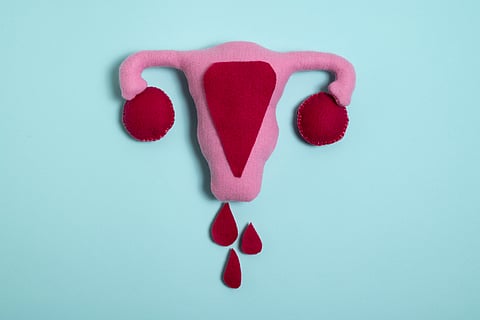

India may have over 40 million women—nearly one-sixth of the global burden—living with endometriosis, a chronic gynecological condition that primarily affects women of reproductive age. Yet, in the absence of robust national data and standardized protocols, many women—especially in rural areas—continue to suffer without timely diagnosis or effective treatment.
In a significant development, the Indian Council of Medical Research–National Institute for Research in Reproductive and Child Health (ICMR–NIRRCH), Mumbai, has introduced a new framework called EndoCare India. This integrated, multidisciplinary care model aims to strengthen the diagnosis, treatment, and management of endometriosis in India’s public tertiary healthcare system.
This initiative is based on findings from the Endometriosis Clinical and Genetic Research in India (ECGRI)—India’s first national study investigating the clinical, genetic, and environmental factors influencing different subtypes of endometriosis. The study also assessed lifestyle risk factors and revealed alarming trends in disease burden and delays in care.
Conducted across 18 centres in nine Indian states (including Kerala, Maharashtra, Uttar Pradesh, and Karnataka), the five-year study involved 1,775 women diagnosed with endometriosis and an equal number of controls. It found that most women experienced an average delay of nearly nine years from the onset of symptoms to a confirmed diagnosis.
Key findings from the ECGRI study include:
37% of patients reported symptoms starting during adolescence
77% developed symptoms before the age of 30
The most common symptoms were chronic pain (73%) and infertility (46%)
Underweight women were found to have a higher risk
Strong links were noted with heavy bleeding, short or irregular cycles, and hormonal use
Additionally, women with endometriosis were more likely to have other health conditions:
Over 50% had other gynecological disorders
18.6% had autoimmune conditions
13.5% had musculoskeletal issues
11.6% had psychiatric illnesses
The majority of women in the study were urban residents (66%), married (88%), and unemployed (60%)—highlighting disparities in access and awareness.
“EndoCare India is designed to meet the complex medical, psychological, and social needs of women with endometriosis across various life stages,” said Dr. Rahul Gajbhiye, Scientist E and Deputy Director at ICMR-NIRRCH, who led the ECGRI study. “Our model draws from international best practices and Indian data, and promotes comprehensive, coordinated, and patient-centered care.”
The care model brings together a wide spectrum of specialists—including gynecologists, anesthesiologists, surgeons, radiologists, pathologists, mental health experts, physiotherapists, nutritionists, and social workers—to offer lifelong support to patients.
Globally, countries like the US, UK, Canada, Sweden, France, Denmark, and Australia provide multidisciplinary care through dedicated pelvic pain clinics, enabling early detection and better outcomes. In contrast, India faces multiple challenges:
A shortage of specialists trained in endometriosis
Weak rural infrastructure
Low awareness among both the public and primary care providers
Social taboos around menstruation and surgery, especially before marriage
“Many women delay seeking care until the pain becomes unbearable, often suffering silently for years,” said Dr. Gajbhiye. “The taboo surrounding menstrual health must be broken.”
He emphasized the urgent need for school-based awareness programs—similar to initiatives in New Zealand—tailored for India. Community-wide sensitization and policy-level interventions are also needed to normalize conversations around menstruation and ensure better access to care.
Dr. Gajbhiye recently presented the ECGRI findings and the EndoCare India model at the 16th World Congress on Endometriosis held in Sydney, Australia.
According to the World Health Organization (WHO) 2023, approximately 10% of women of reproductive age worldwide suffer from endometriosis. India now has an evidence-based model that could finally address this long-neglected women’s health issue—if it is adopted widely and implemented effectively.